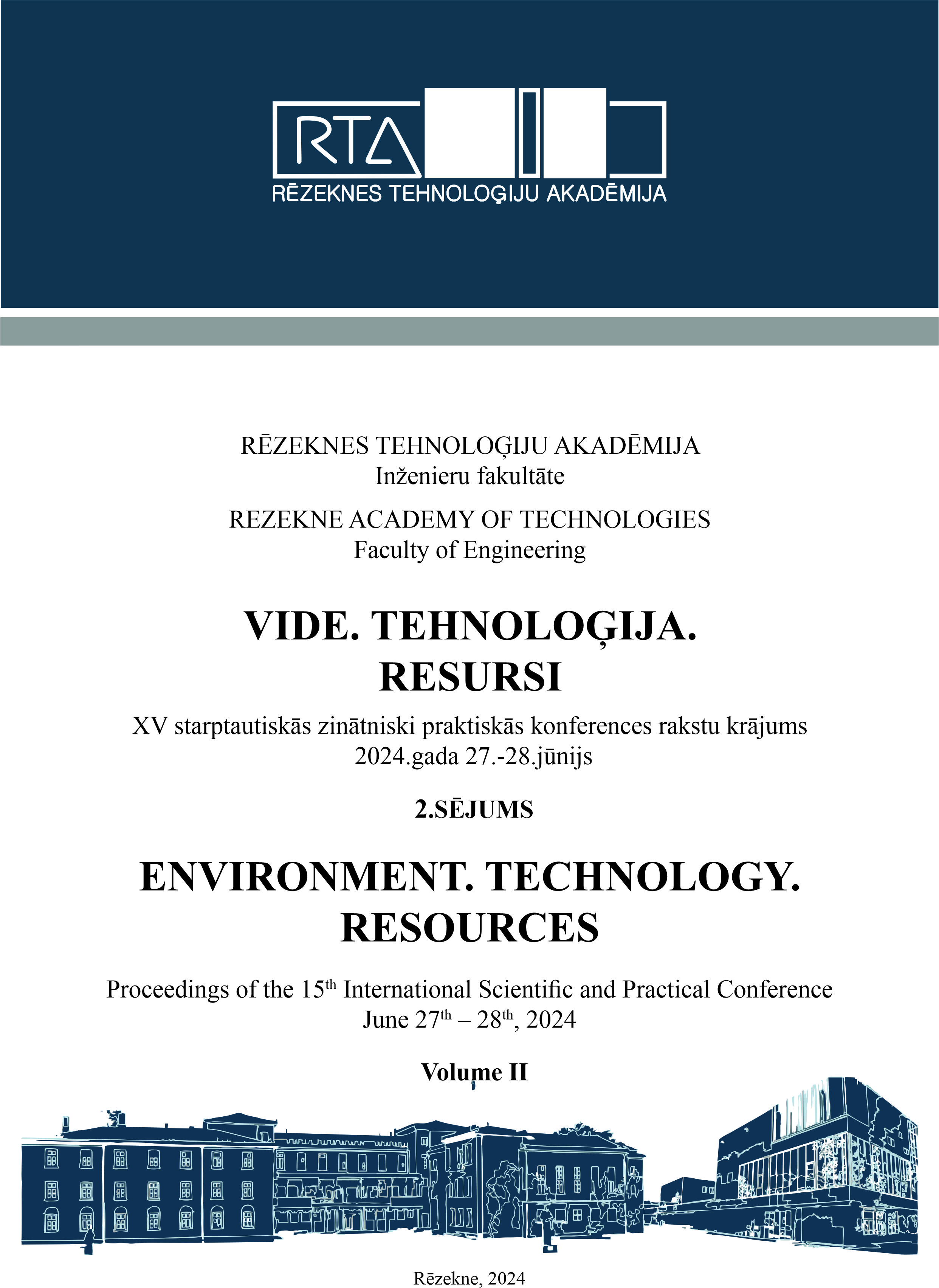CALCULATION OF HUMAN FATIGUE IN THE ENVIRONMENT OF LINGUISTIC VARIABLES
DOI:
https://doi.org/10.17770/etr2024vol2.8044Keywords:
decision making, human fatigue, linguistic variables, membership functionsAbstract
In order to reduce the number of accidents in such sectors of work, such as, driving vehicles, the operator's work on the radar screen, a system is required capable of determining the degree of fatigue of a particular person at a given moment of time according to the data received from sources of information, preventing arbitrary fall asleep and providing recommendations for further action regarding rest options up to work suspension. The system shall be suitable for a situation where the space of the measured parameters consists predominantly of parameters with no numerical values (gradations). There is only a linguistic description with a scoring scale. For this parameter group, it is proposed to use the theories of the non-strict and linguistic variables for the implementation of decision procedures. It not only brings a portion of the system’s operating algorithm calculations into an environment of non-strict mathematics and also allows the decision to return to the normal environment. The work provides a calculation algorithm in a non-strict environment and a description of the resulting computer system.References
M. Eriņš and Z. Markovičs, “Unordinary situation assessment of human fatigue and drowsiness in expert decision-making systems,” Engineering for Rural Development, pp. 325-331, 2022.
E. Butkevičiūtė, M. Eriņš, and L. Bikulciene, “Mobile Platform for Fatigue Evaluation: HRV Analysis,” In: Information and Software Technologies: 25th International Conference (ICIST.2019): Proceedings. Communications in Computer and Information Science. Vol.1078, Lithuania, Vilnius, 10-12 October, 2019. Cham: Springer Nature Switzerland AG, 2019, pp.541-552.
L.A. Zadeh, “Fuzzy Sets,” Information Control, vol. 8, pp. 338-353, 1965.
L.A. Zadeh, “The Concept of a Linguistic Variable and Its Application to Approximate Reasoning-1,” Information Sciences, vol. 8, pp. 199-249, 1975.
M. Sallinen, M. Harma, R. Akila, A. Holm, R. Luukkonen and H. Mikola, “The effects of sleep debt and monotonous work on sleepiness and performance during a 12-h dayshift,” Journal of Sleep Research , vol. 13, pp. 285–94, 2004.
M. Fabbri, A. Beracci, M. Martoni, D. Meneo, L. Tonetti, and V. Natale, “Measuring Subjective Sleep Quality: A Review,” International journal of environmental research and public health, vol. 18(3), p. 1082, 2021.
J. Zhao and B. K. Bose, "Evaluation of membership functions for fuzzy logic controlled induction motor drive," 28th Annual Conference of the Industrial Electronics Society. IECON 02, Seville, Spain, pp. 229-234, 2002.
J. Osis, J. Grundspeņķis, and Z. Markovičs, Topological Modeling of Complex Heterogeneous Systems: Theory and Applications. Rīga: RTU, pp. 207-214 , 2012.
E.H. Mamdani and S. Assilian, “An experiment in linguistic synthesis with a fuzzy logic controller,” International Journal of Man-Machine Studies, vol. 7(1), pp. 1–13, 1975.
T. Takagi and M. Sugeno, "Fuzzy identification of systems and its applications to modeling and control," in IEEE Transactions on Systems, Man, and Cybernetics, vol. SMC-15, no. 1, pp. 116-132, Jan.-Feb. 1985.
C. C. Lee, “Fuzzy Logic in Control System: Fuzzy Logic Controller - Part I & II,” IEEE Transactions on Systems, Man and Cybernetics, Vol. 20, No. 2, pp. 404-435, 1990.
M. Eriņš and D. Muska, “Methodology for selection and decision making of gradation of sleepiness using algorithms for face video image processing,” Engineering for Rural Development, pp.1666-1673. ISSN 1691-3043, 2020.
Downloads
Published
Issue
Section
License
Copyright (c) 2024 Matīss Eriņš, Zigurds Markovičs

This work is licensed under a Creative Commons Attribution 4.0 International License.



